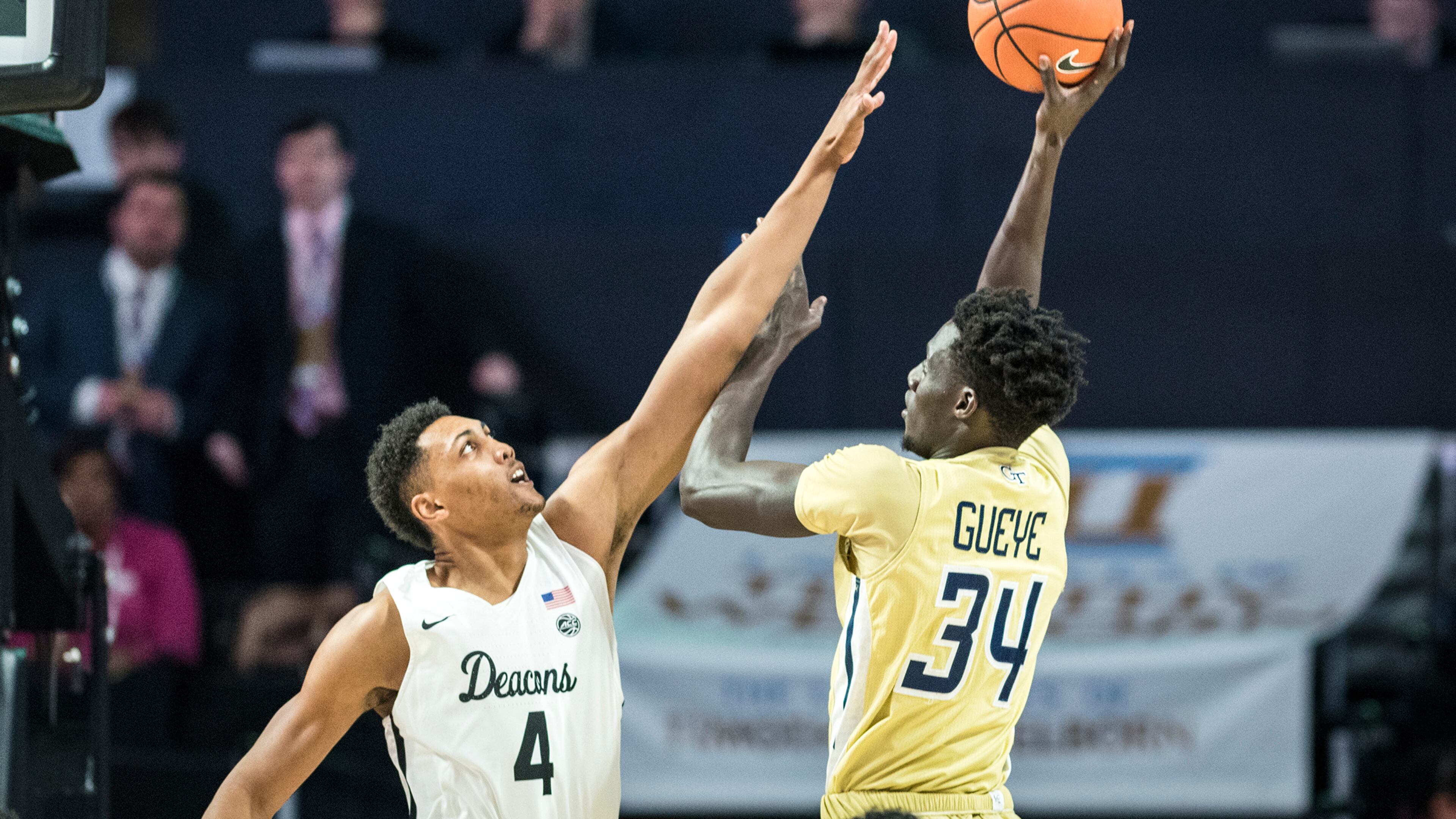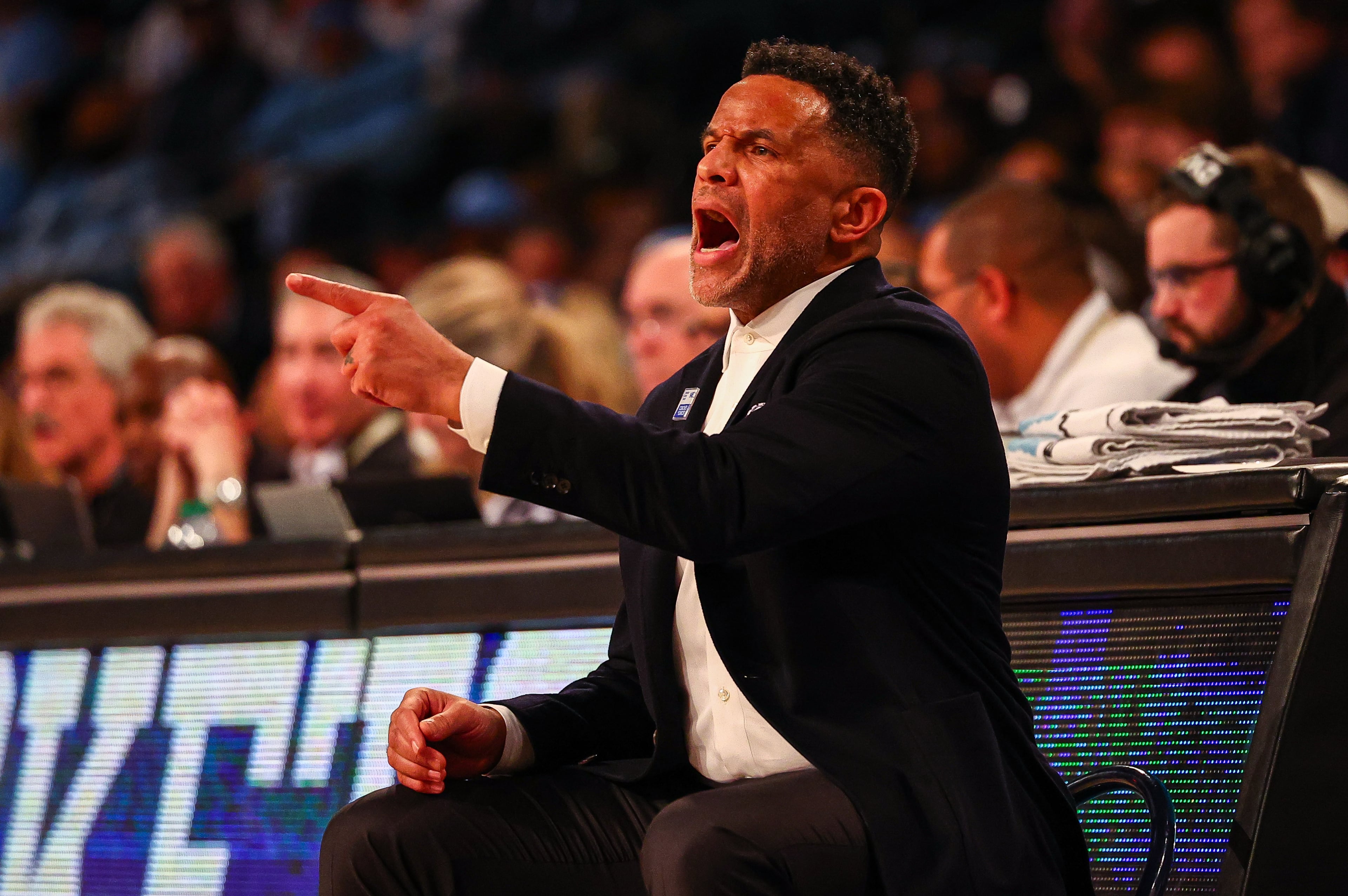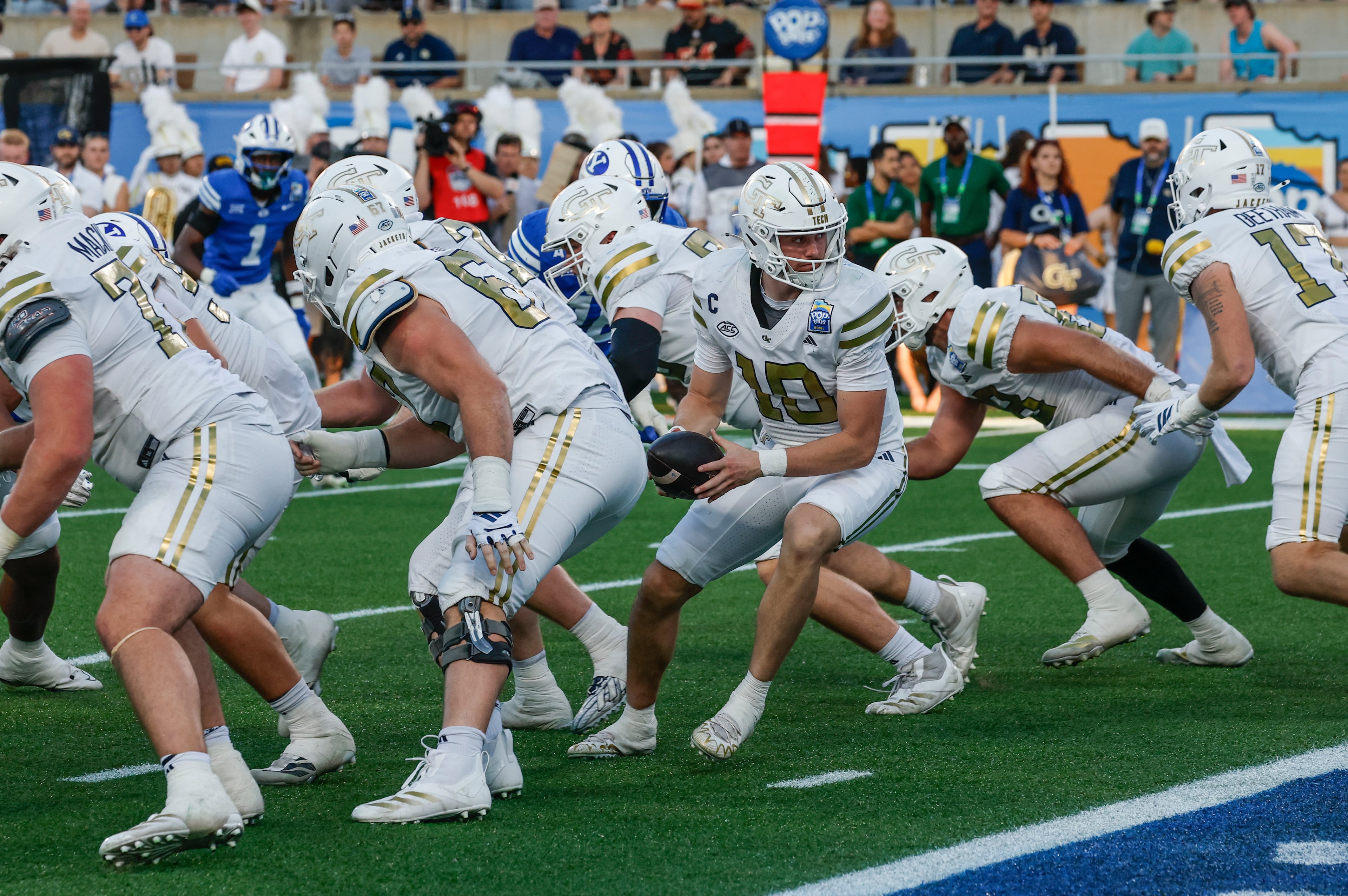5 observations from Georgia Tech’s loss to Wake Forest

A team that had lost 10 of its past 11 games proved too much for Georgia Tech. The Yellow Jackets were overwhelmed by Wake Forest Wednesday, falling 79-62 at the Joel Coliseum.
Tech (11-15 overall, 4-9 ACC) turned the ball over 14 times to the Demon Deacons’ five and was splattered once again from 3-point range by the opposition. Wake Forest (10-16, 3-11) played probably its best offensive game of the season and used depth to wear down the Jackets and their injury-depleted roster.
Five observations from the game:
1. Not much defense
There was just about nothing that Tech did with any degree of proficiency on defense. Coach Josh Pastner’s decision to send four players to the offensive glass was a risk-reward play that did not work out for Tech. The Jackets collected only six offensive rebounds and in turn left themselves vulnerable to be beaten down the floor for transition baskets, which they frequently were.
Also, the Demon Deacons worked Tech from side to side and inside out to create open 3-point tries. Wake Forest lit up Tech with 9-for-17 shooting beyond the arc – 52.9 percent, the Demon Deacons’ season high – often on attempts in which the Jackets were late to challenge.
“They had us in rotation, in scramble mode a lot,” guard Josh Okogie said, “and we couldn’t stay in front of our men, which obviously forces help and it opens 3’s.”
The Demon Deacons shot 49.2 percent from the field, their high for an ACC game. Their five turnovers were a season low. When they took a 10-point lead late in the first half, it was the first time they had led by double digits at any point of their 14 ACC games this season. The lead grew to as large as 21 points in the second half.
In the past six games, Tech opponents have shot 47 percent from 3-point range (54 for 115). Tech’s defensive 3-point percentage was 28.8 percent in the Jackets’ first seven ACC games.
“The last few games, the personal accountability to stop guys, we just haven’t gotten that,” Pastner said.
Pastner was so aggravated with the Jackets’ defense at halftime that he cut short his comments and adjustments and sent the team back out on the floor a few minutes earlier than usual.
“I was just so mad,” he said. “There was no strategy talk. It was more of a plead and passionate, fired-up speech.”
2. Shifts in lineup
With point guard Jose Alvarado out of the lineup for the first time this season following the season-ending elbow injury he suffered in Tech’s loss to Duke on Sunday, freshman forward Evan Cole received his first career start. After a frenetic performance during the second half of the loss to Duke, Cole played with energy and gave 35 minutes. He finished with eight points, seven rebounds, two assists, two steals and a block against one turnover.
“Evan played hard,” Pastner said. “Evan competed. Sometimes, he was like a chicken with his head cut off in a sense because he’s flying around, but gets after it and he mixes things up.”
Cole said he wasn’t nervous.
“(I) just try to bring as much energy and play as hard as I can every time I come on the floor, whether I’m starting or not,” he said.
Wright came off the bench and played 16 minutes and was scoreless with no rebounds. He had had nine points and seven rebounds against Duke.
“He was good vs. Duke,” Pastner said. “He can’t have a stat line in the 16 minutes he played with no rebounds.”
Tech missed Alvarado’s toughness and ability to move the ball up the floor, on the dribble or with the pass. His absence also caused considerable shuffling. Okogie moved over to the point, leading Tech with 20 points. Besides Cole, guard Tadric Jackson moved into the starting lineup after coming off the bench for every ACC game this season. Players were put in different spots in Tech’s zone defenses.
“It’s pretty much like we’re starting a new season,” center Ben Lammers said.
3. Lammers better after all-nighter
Stuck in a slump, Lammers showed some of his old form, knocking down at least three long jump shots and finishing with 14 points on 5-for-9 shooting. He looked more for his shot than he has in previous games, although he only took two shots in the second half as he had fewer touches.
“I thought Ben was better than he’s been in a long time,” Pastner said. “He was aggressive from the start.”
He and forward Abdoulaye Gueye were both impactful, as Gueye contributed 12 points on 5-for-8 shooting, although he only had one rebound. Gueye had scored 17 points in the previous four games and Lammers had scored 10 in the previous two.
“One of the first games where my shot actually felt pretty normal,” Lammers said.
Lammers was playing with a cold and with less than ideal rest. He pulled an all-nighter Monday night for a Tuesday machine design exam. The mechanical engineering major had been under the mistaken impression that the test was on Thursday until he began to study for it Monday night and re-checked his syllabus.
His assessment of the exam: “It wasn’t fun.”
4. How the game was lost
Tech allowed a 10-0 spurt late in the first half that began to shift control of the game to Wake Forest. The Jackets trailed early by as many as nine points before rallying. The game was tied at 26 with under seven minutes left in the half. Guard Keyshawn Woods scored a three-point play with a layup and free throw before the Jackets could set up their defense. Woods scored again on a jumper off an inbounds play. After forward Evan Cole missed a 3-pointer, Wake Forest scored again in transition, this time on an alley-oop dunk by center Doral Moore (from Atlanta). On the Demon Deacons’ next possession, excellent ball movement created an open 3-pointer for Mitchell Wilbekin to cap the 10-0 run and take a 36-26 lead.
Tech didn’t get closer than six points the rest of the way, never able to string enough defensive stops together or score consistently enough to challenge the Demon Deacons.
Tech is 1-10 this season when trailing at the half.
5. Possibly a bumpy ride home
Tech has now lost eight of nine. While Wednesday’s loss was the first with the new lineup, it hardly bodes well for the rest of the season. Of the Jackets’ five remaining regular-season games, the next four are against teams that are either locks for the NCAA Tournament (Virginia and Clemson) or are trying to play their way in (Virginia Tech and N.C. State). The final regular-season game is against Wake Forest at home March 3, when the Demon Deacons will be coming off their bye and the Jackets will be playing on a day’s rest.
The Jackets looked a little out of sorts without their point guard, are probably running out of gas and, where they relied so heavily on defense last year, are getting scored on in bunches.
Pastner had no issues with the team’s effort Wednesday. But it’s a group that looks like it needs to have everyone playing at peak level just to have a chance, and, given the youth and inexperience within the rotation, the Jackets can’t count on that sort of convergence.
“We’ve got to find a way to get some wins,” Pastner said.



